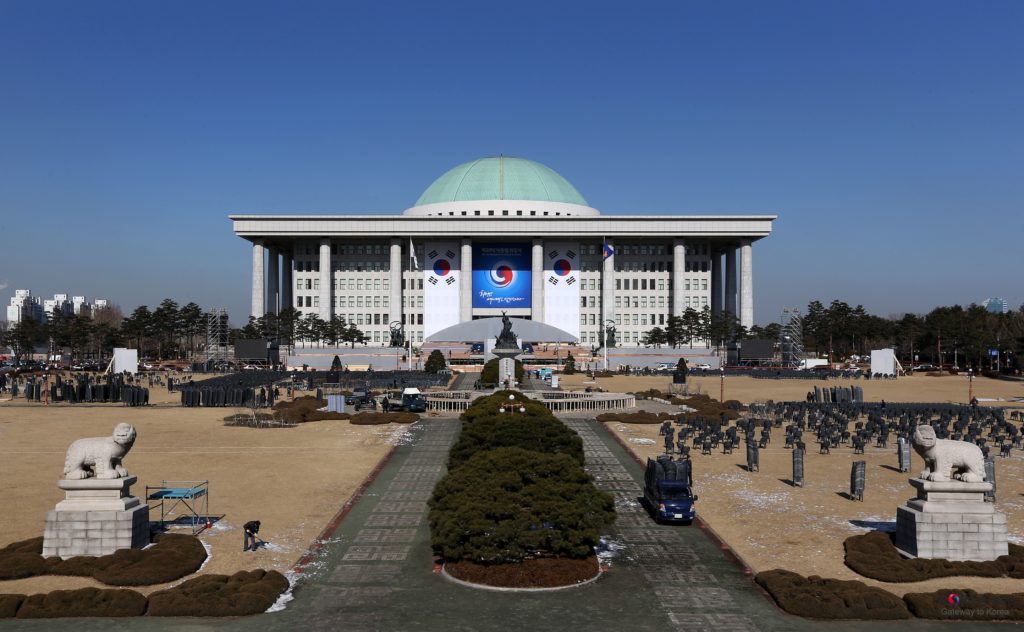The Peninsula
Political Parties Move to Attract Younger Voters

This briefing comes from Korea View, a weekly newsletter published by the Korea Economic Institute. Korea View aims to cover developments that reveal trends on the Korean Peninsula but receive little attention in the United States. If you would like to sign up, please find the online form here.
What Happened
- On December 27, the National Assembly lowered the voting age from 19 to 18.
- Under the new law, approximately 530,000 18-year-old citizens are now eligible to vote in the upcoming legislative elections in April.
- This includes 140,000 current high school students. In response, Education Minister Yoo Eun-hye announced plans to widen civics education.
- According to Gallup Korea polling on December 10, the approval rating for the Minjoo Party among constituents aged 19 to 29 stood at 37 percent. Same poll found 10 percent support for the Liberty Korea Party, 9 percent for the Bareunmirae Party, and 8 percent for the Justice Party.
Implications: Ongoing efforts by the major parties to transform their image ahead of National Assembly elections in April have been accelerated by the extension of suffrage to 18-year-old citizens. Although the newly enfranchised voters are estimated to be only 1.1 percent of the total electorate, they are expected to have an impact in closely-contested districts. With this upcoming election set to determine President Moon Jae-in’s authority for the remainder of his term, the stakes of winning these competitive areas are elevated for both the ruling and opposition parties. As a result, there is a spotlight on the youth vote.
There is an assumption that the new voting age rule will benefit progressive parties. However, this is not a certainty. With Korea still struggling with high youth unemployment, perceptions that the incumbent administration has failed to deliver employment growth may curb youth enthusiasm for the ruling progressive party. Moreover, President Moon’s approval rating among voters in their 20s dipped slightly during the scandal surrounding former Justice Minister Cho Kuk. Since the scandal centered around the accusation that Minister Cho gave his children an unfair advantage in college admissions, the negative outlook towards the incumbent administration may be more accentuated among 18-year old voters.
Context: When Japan lowered its voting age from 20 to 18 ahead of the 2015 elections, Japan’s conservative Liberal Democratic Party won 40 percent of the votes while the opposition party only garnered 17 percent. At that time, Japanese youth voted primarily based on which party they thought had a better economic policy.
Korea View was edited by Yong Kwon with the help of Gordon Henning, Soojin Hwang, and Ingyeong Park.
Photo from the Republic of Korea’s photostream on flickr Creative Commons.
